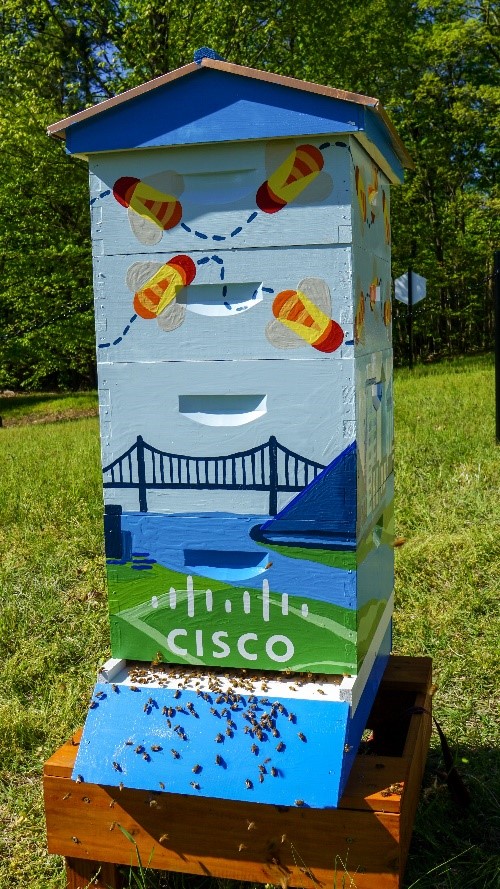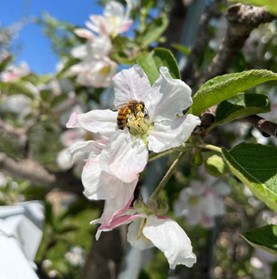5 Reasons Why Saving the Bees Is So Critical for Both People and Planet
Cisco is supporting the growth of healthy honeybee populations.
One of every three bites of food eaten worldwide depends on pollinators, especially bees, for a successful harvest. Yet, despite how critical bees are to the natural environment and human food systems, global bee populations continue to decline.
Over the past decade alone, beekeepers in the US and Europe have reported annual bee colony losses of 30% to 50%. The decline has been blamed on a variety of factors, from pesticide use to industrial farming techniques, habitat loss, and climate change.
Here are five reasons why it’s critical to save the world’s bees, both for human well-being and for the protection of the environment.
- Beehives are a great model for social cooperation.
We can learn a lot from bees. In a colony, each individual bee has a role to play that’s essential to the survival of the hive. From worker bees that protect the hives and nurture its food to nursing bees that tend to the young, each member of the colony is critical because every task is equally important.
- Bees are critical to our food systems.
Protecting bees is about more than allowing insects to buzz and pollinate — it’s about protecting the integrity and sustainability of our agricultural systems. According to the Food and Agriculture Organization (FAO), bees and other pollinators affect 35% of global agricultural land, supporting the production of 87 of the leading food crops worldwide. Bees also help to pollinate the majority of the planet’s wild plants, which support healthy ecosystems.
- Bees are the front lines in the battle against climate change.
Evidence has shown that global warming is one of the key drivers of the decline of bees globally. Some wild bees and other pollinators have only a small temperature window where they can live. So when temperatures rise, they are forced to head to colder climates to seek refuge, reducing the overall territory they can inhabit, and reducing population sizes. This can have ripple effects on the surrounding ecosystem.
- Healthy bee populations help promote biodiversity.
The decline of bees is emblematic of the broader decline of wildlife around the world. Bees require diverse and lush landscapes for food, reproduction, and nesting. So when ecosystem diversity is affected, the surrounding pollinator populations are, too.
- Pests and pesticides are making things worse.
Researchers point to parasites and disease-causing “pathogens” as leading causes in the collapse of honeybee colonies around the world. The primary parasite that’s wiping out honeybee populations is the “Varroa destructor.” This deadly mite affects most honeybee colonies in the US and is the main cause of the 45.5% loss rate in 2021. It latches onto the bees in their larval state and feeds on the developing larva which weakens its immune system and transmits disease.
To read the whole article go to; 5 Reasons Why Saving the Bees Is So Critical for Both People and Planet (globalcitizen.org)









